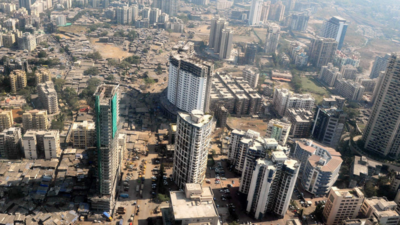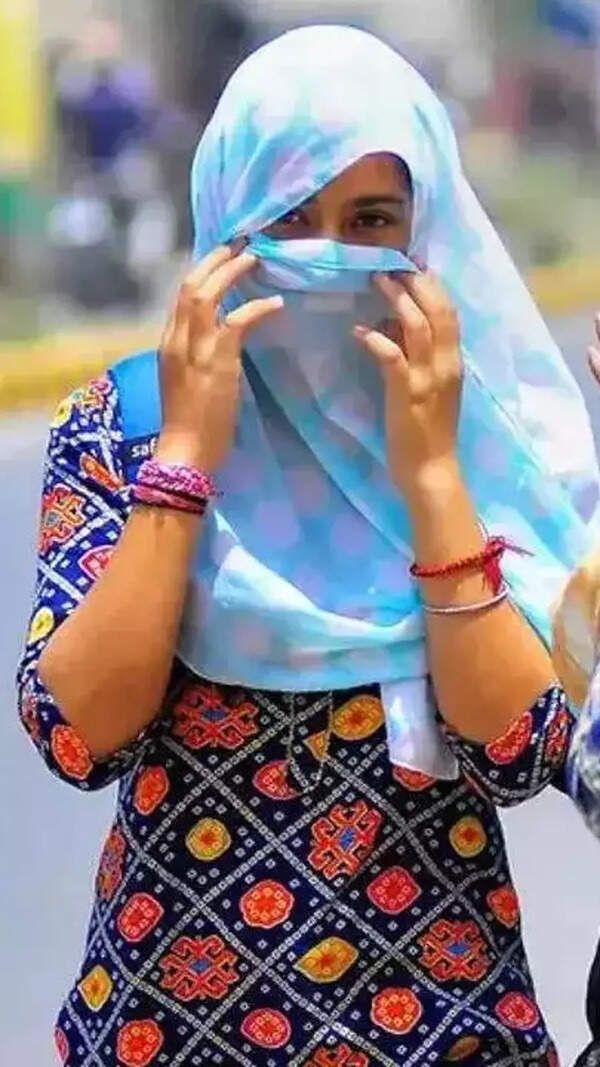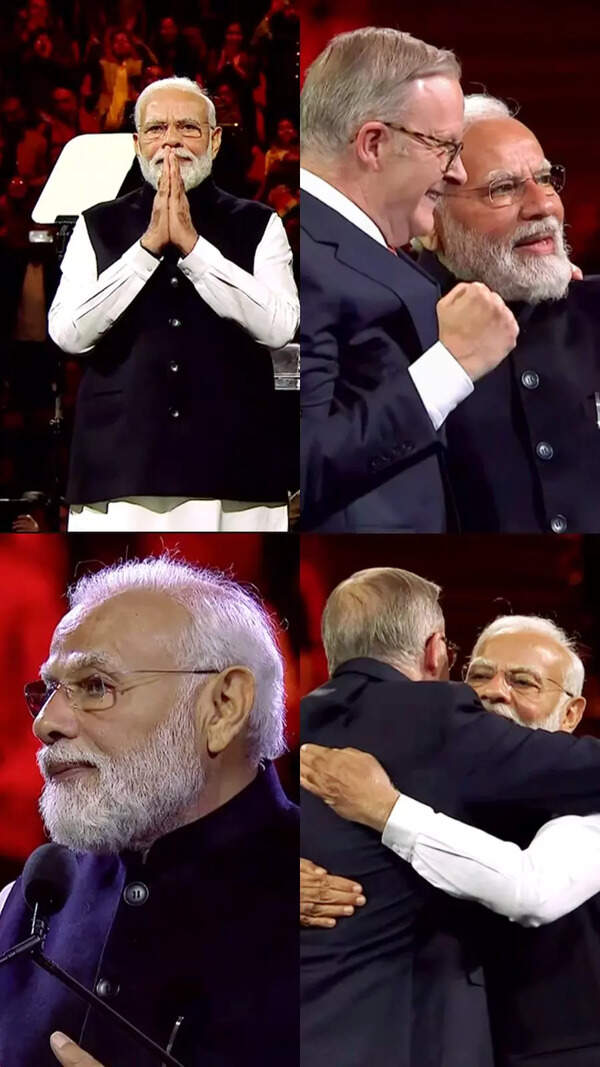- News
- City News
- mumbai News
- 'Open spaces in Mumbai can't be left to caretakers'
Trending Topics
'Open spaces in Mumbai can't be left to caretakers'

Recently, residents have come out in protest against the Brihanmumbai Municipal Corporation's (BMC) plan to build an underground parking lot at Patwardhan Park, Bandra.
Recently, residents have come out in protest against the Brihanmumbai Municipal Corporation's (BMC) plan to build an underground parking lot at Patwardhan Park, Bandra.
Similarly, residents have objected to construction of a metro station next to Sadhu Vaswani Park, Bandra. These development plans have two blind spots that have led to the protests: loss of Mumbai's green cover and the threat they pose to the city's already scarce open spaces. Here's a look at the laws that govern our environment in the city and state:
What is the law regulating tree-felling in urban areas?
Protection of trees and regulation of their felling is governed by the Maharashtra (Urban Areas) Protection and Preservation of Trees Act, 1975.
Under the 1975 Act, every urban local authority, including the BMC, must constitute a tree authority whose responsibilities include preservation and trimming of trees and granting permission for tree-felling. After publication of requisite notices and necessary examination, the authority may grant permission for tree-felling. Where any project requires felling of over 200 trees or any heritage tree (older than 50 years), for higher accountability, permission from the Maharashtra State Tree Authority (MSTA) is required.
Over the years, citizens have expressed concerns regarding the number of approvals granted by the MSTA. Local tree authorities are also plagued with several issues: for instance, they meet infrequently, and tree experts as mandated by the 1975 Act, are absent in some places.
Many parks in poor condition, open spaces under contractors
Tree-felling is not the only issue affecting Patwardhan Park and other such parks. Open spaces and parks in Mumbai are also poorly maintained. Construction material and garbage is often found dumped in them. Play equipment and other facilities are often found to be broken, posing a threat to safety.
Every few years, the BMC releases an open spaces policy which provides for development and allotment of parks, gardens and recreation grounds. These policies, including the latest policy of 2016, allow participation from private contractors under two models - an adoption model and a caretaker model. A contractor under the adoption model is appointed for maintenance and upkeep of open spaces. A contractor under the caretaker model is permitted to construct on a portion of the open space and obligated to maintain the remaining area. Such private participation has been sought by the BMC citing a paucity of funds.
Despite involving private contractors, the city's parks are in poor condition. Moreover, the BMC has lost approximately 20% of its landholding to caretaker contractors who have constructed member-only clubs on BMC's plots.
Under the Mumbai Municipal Corporation Act, 1888, laying out or maintenance of public parks, gardens and recreation grounds is a 'discretionary duty' of the BMC. Discretionary duties are duties that are not compulsory but may be taken up depending on the BMC's financial resources. Fund allocation to the Garden Department that maintains these open spaces has not grown in line with the BMC's otherwise swelling budget. The Garden Department has also consistently spent less than the budgeted expenditure for open spaces. Open spaces seem to be low on the list of BMC's priorities.
Ward committees of residents needed to save green spaces
It is claimed that the parking lot proposed at Patwardhan Park would lead to loss of a natural sponge that protects the flood-prone surrounding regions. This will consequently cause large-scale flooding. To preserve green cover, tree authorities must examine the environmental implications of tree-felling proposals thoroughly and grant permissions only where necessary. Independent experts and local residents must be part of all tree authorities and the MSTA.
Open spaces in urban areas are not merely ornamental, they are also spaces for children to play, to build a sense of community, and people to seek respite. As a way forward, BMC's new open space policy which is currently under deliberation should not bank on the caretaker model. To encourage a more participatory approach, third-tier governance bodies such as the Wards Committees must be permitted to use funds available with the Garden Department for maintenance of public parks and other open spaces. Residents must be at the centre of open space management, maintenance and enjoyment.
(This piece is based on a book titled 'Maharashtra Moving Forward: 15 Legal Reforms for the State' by the Vidhi Centre for Legal Policy, Maharashtra. The book will be released on June 9, 2023 at the YB Chavan Auditorium, Mumbai)
Similarly, residents have objected to construction of a metro station next to Sadhu Vaswani Park, Bandra. These development plans have two blind spots that have led to the protests: loss of Mumbai's green cover and the threat they pose to the city's already scarce open spaces. Here's a look at the laws that govern our environment in the city and state:
What is the law regulating tree-felling in urban areas?
Protection of trees and regulation of their felling is governed by the Maharashtra (Urban Areas) Protection and Preservation of Trees Act, 1975.
Under the 1975 Act, every urban local authority, including the BMC, must constitute a tree authority whose responsibilities include preservation and trimming of trees and granting permission for tree-felling. After publication of requisite notices and necessary examination, the authority may grant permission for tree-felling. Where any project requires felling of over 200 trees or any heritage tree (older than 50 years), for higher accountability, permission from the Maharashtra State Tree Authority (MSTA) is required.
Over the years, citizens have expressed concerns regarding the number of approvals granted by the MSTA. Local tree authorities are also plagued with several issues: for instance, they meet infrequently, and tree experts as mandated by the 1975 Act, are absent in some places.
Many parks in poor condition, open spaces under contractors
Tree-felling is not the only issue affecting Patwardhan Park and other such parks. Open spaces and parks in Mumbai are also poorly maintained. Construction material and garbage is often found dumped in them. Play equipment and other facilities are often found to be broken, posing a threat to safety.
Every few years, the BMC releases an open spaces policy which provides for development and allotment of parks, gardens and recreation grounds. These policies, including the latest policy of 2016, allow participation from private contractors under two models - an adoption model and a caretaker model. A contractor under the adoption model is appointed for maintenance and upkeep of open spaces. A contractor under the caretaker model is permitted to construct on a portion of the open space and obligated to maintain the remaining area. Such private participation has been sought by the BMC citing a paucity of funds.
Despite involving private contractors, the city's parks are in poor condition. Moreover, the BMC has lost approximately 20% of its landholding to caretaker contractors who have constructed member-only clubs on BMC's plots.
Under the Mumbai Municipal Corporation Act, 1888, laying out or maintenance of public parks, gardens and recreation grounds is a 'discretionary duty' of the BMC. Discretionary duties are duties that are not compulsory but may be taken up depending on the BMC's financial resources. Fund allocation to the Garden Department that maintains these open spaces has not grown in line with the BMC's otherwise swelling budget. The Garden Department has also consistently spent less than the budgeted expenditure for open spaces. Open spaces seem to be low on the list of BMC's priorities.
Ward committees of residents needed to save green spaces
It is claimed that the parking lot proposed at Patwardhan Park would lead to loss of a natural sponge that protects the flood-prone surrounding regions. This will consequently cause large-scale flooding. To preserve green cover, tree authorities must examine the environmental implications of tree-felling proposals thoroughly and grant permissions only where necessary. Independent experts and local residents must be part of all tree authorities and the MSTA.
Open spaces in urban areas are not merely ornamental, they are also spaces for children to play, to build a sense of community, and people to seek respite. As a way forward, BMC's new open space policy which is currently under deliberation should not bank on the caretaker model. To encourage a more participatory approach, third-tier governance bodies such as the Wards Committees must be permitted to use funds available with the Garden Department for maintenance of public parks and other open spaces. Residents must be at the centre of open space management, maintenance and enjoyment.
(This piece is based on a book titled 'Maharashtra Moving Forward: 15 Legal Reforms for the State' by the Vidhi Centre for Legal Policy, Maharashtra. The book will be released on June 9, 2023 at the YB Chavan Auditorium, Mumbai)
Start a Conversation
FOLLOW US ON SOCIAL MEDIA
FacebookTwitterInstagramKOO APPYOUTUBE







